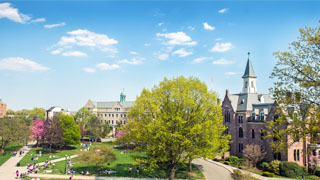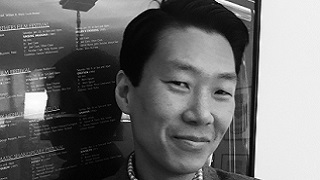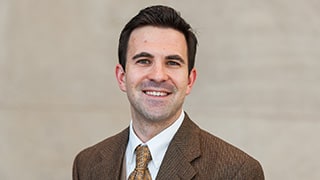University Awarded Lilly Fellow Grant - Seton Hall University
Thursday, December 7, 2017


Professor Ki Joo (KC) Choi, Ph.D.
"Receiving this grant from Lilly is a strong affirmation of the importance of the humanities for Seton Hall, especially the critical role our Religion and Philosophy Departments can and should play in Seton Hall's efforts to support medical education. At the same time, this grant provides the opportunity to explore how medical education can encourage us in the humanities to approach our own disciplines and pedagogies in new and fresh ways," said Choi.
The opening of the Seton Hall – Hackensack Meridian School of Medicine provides a unique opportunity for the University to be a leading voice in bringing its rich heritage of the liberal arts to bear on medical education in the interest of serving the needs of students and society. The grant supports current initiatives in the College of Arts and Sciences in the Medical Humanities, specifically the development of the Medical Humanities Minor sponsored by the Department of Religion and the Department of Philosophy.
Choi explained the motivation in applying for the grant was to promote faculty explorations on the relationship between the humanities and medical education within a Catholic university context. The kinds of questions he hopes this grant helps to explore at the University include: Should the humanities and medical education be segmented in a way that is more typical at state institutions of higher education or should they be more integrated? If more integrated, then what kind of role can the humanities, especially religion and philosophy, play in the training of medical professionals? How might the needs of medical professionals affect how we approach humanistic study?
To address these questions, the grant will support a series of program development seminars in Fall 2018 that aim to bring together medical school faculty and humanities faculty in a way that facilitates cross-disciplinary discussions on pedagogy in the medical humanities. The goal is to foster an academic culture at Seton Hall that pushes the boundaries of what humanities and medical school pedagogy and praxis ought to be.

Thomas Rzeznik, Ph.D.
"The grant will allow Seton Hall to be a leader in shaping the conversation about what medical education ought to be in the 21st century – including how undergraduates interested in medical school and the health professions can be best prepared," said Rzeznik.
To learn more about the Lilly Fellows Program in Humanities and the Arts, visit here.
To learn more about the Department of Religion, click here.
To learn more about the Department of History, visit here.






